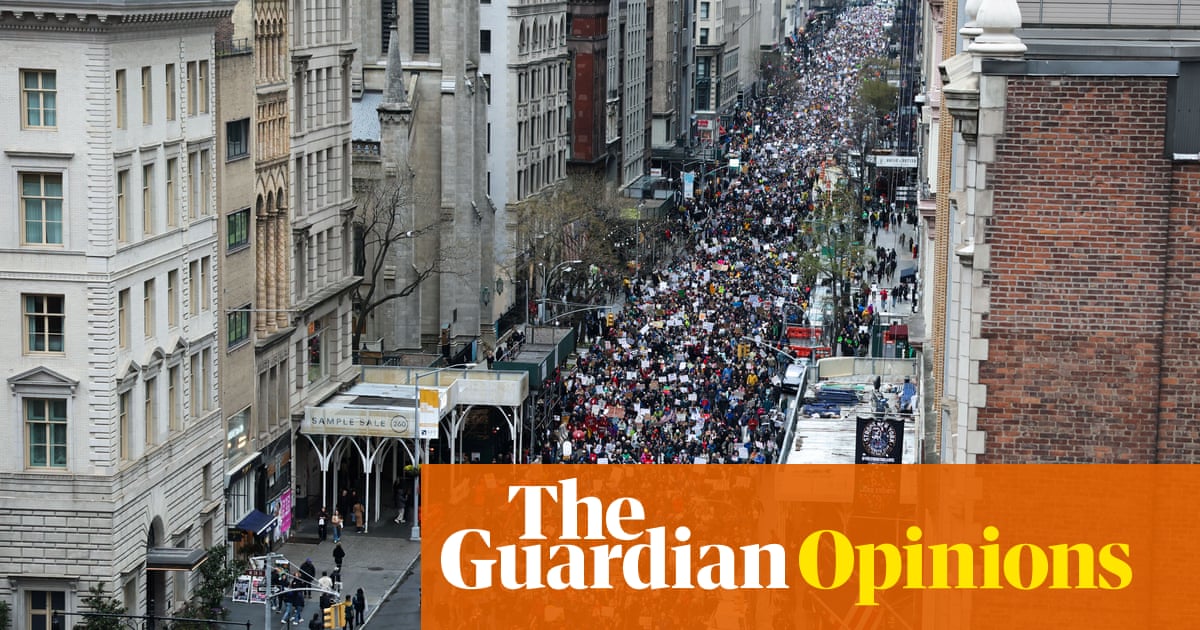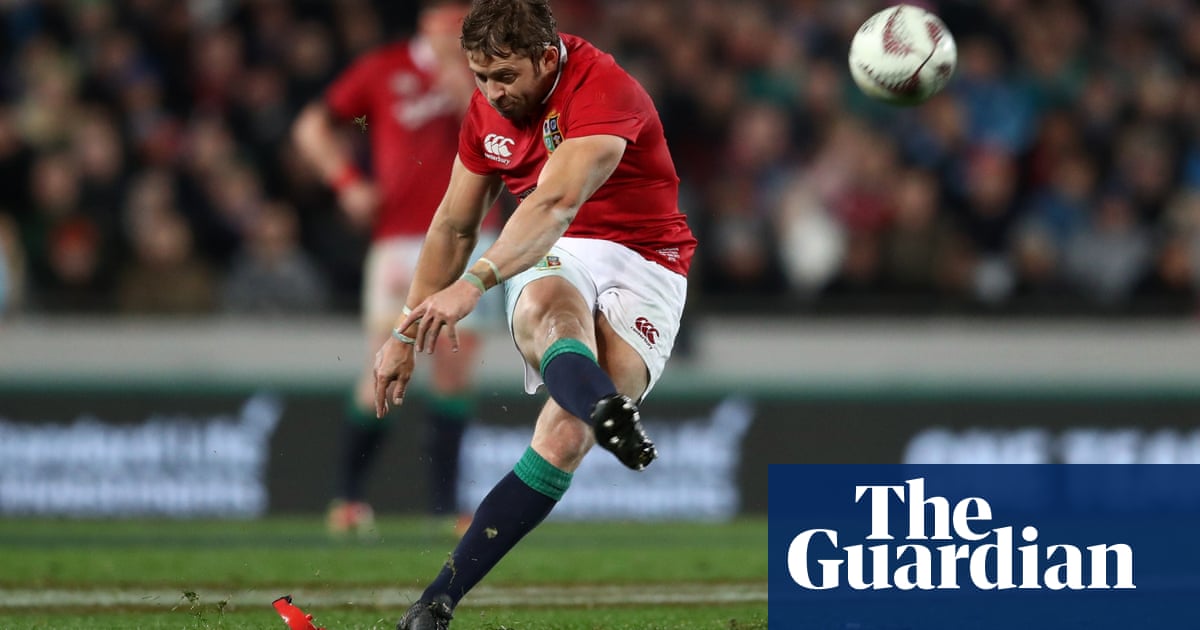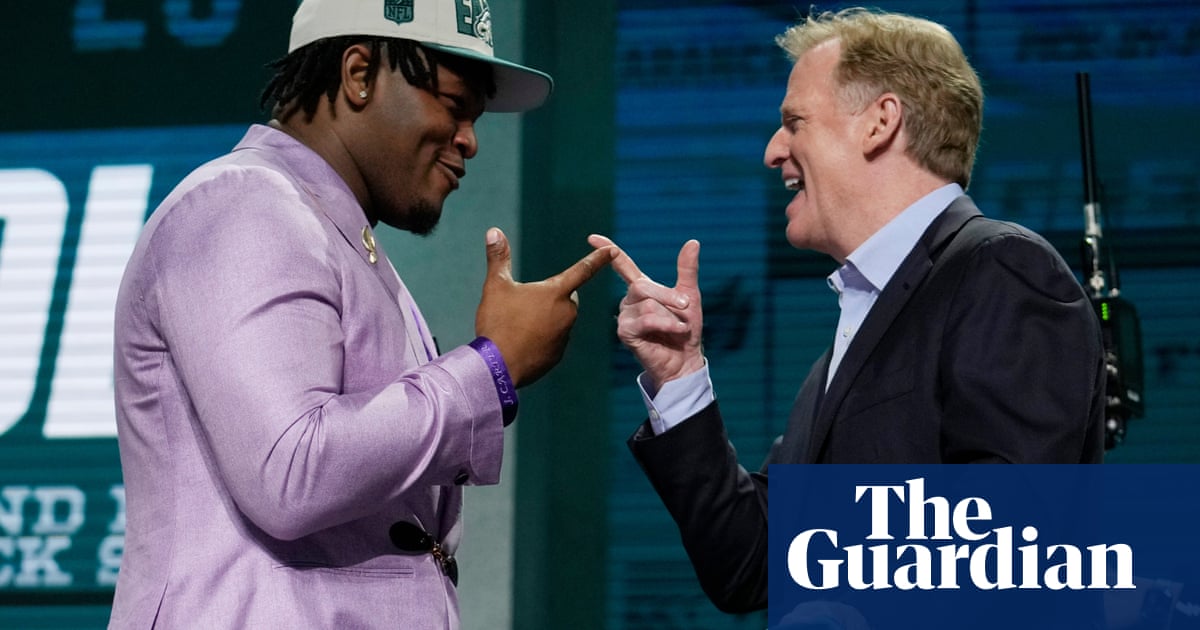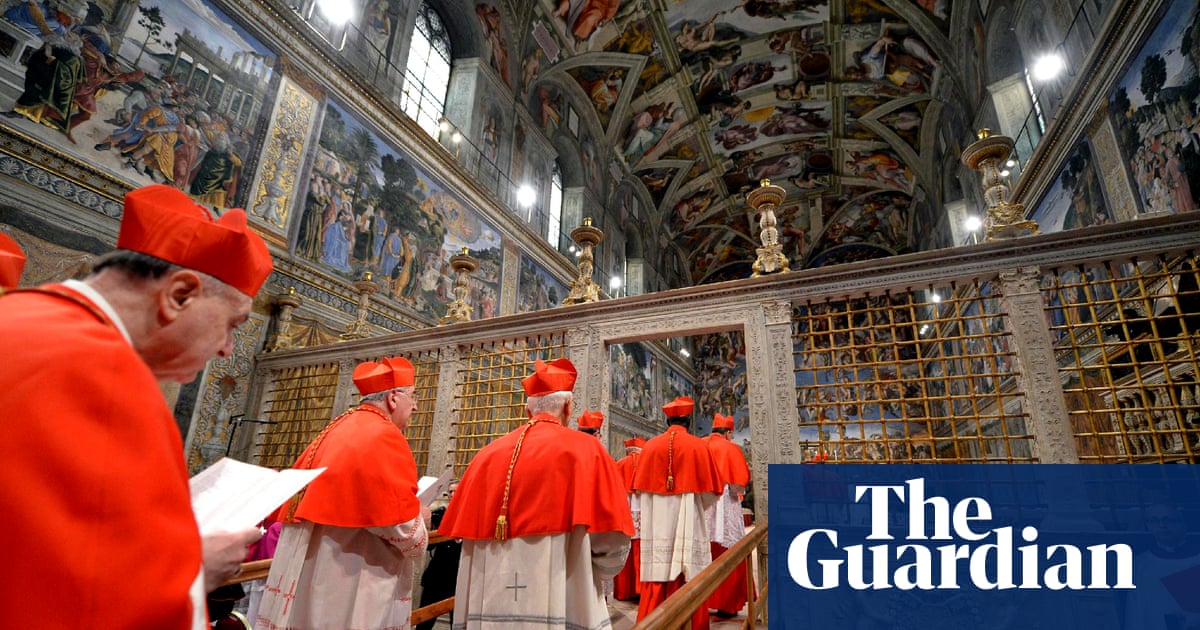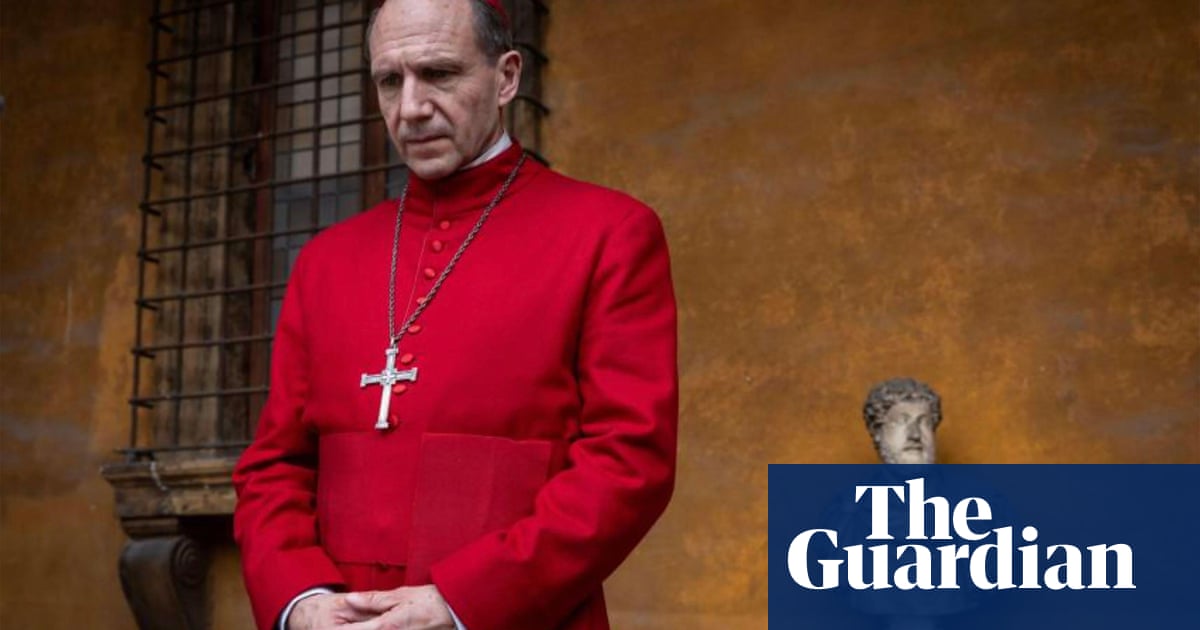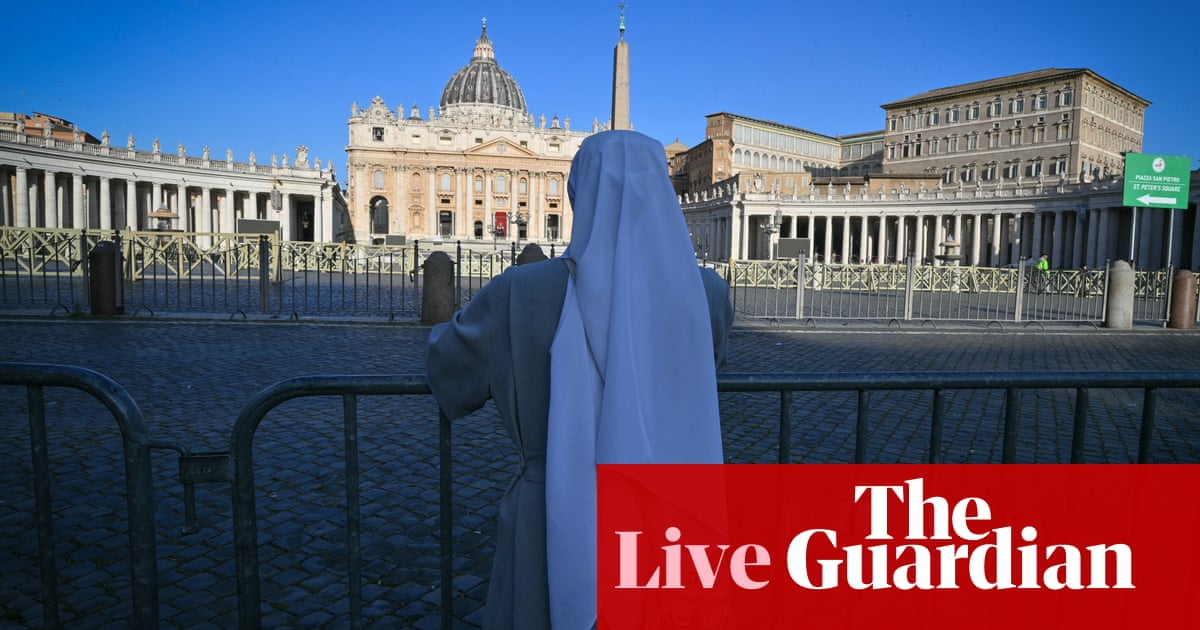Impartiality fan here – for my sins! – but you have to say Robbie Savage and Rio Ferdinand during the closing minutes of Manchester United v Lyon on Thursday night were absolute class. It all starts in the 118th minute, with United 6-5 down on aggregate, and the TNT Sports camera lingering on the face of a crying boy in the crowd. “Let’s hope we can put a smile on that young man’s face by the time we finish,” the commentator Darren Fletcher says.
And it’s worth unpacking those 17 words, because contained within them are at least three layers of assumption. Foremost among which is the assumption that it would be a good thing, all round, if United won. The child is crying. Is there any cause more catholic or universal, any image more reliably guaranteed to tug at the tear ducts, than a crying child? The coefficient can wait for now.
But of course there is a second assumption lurking beyond the first. The use of the first person – “let’s”, “we”, “we” – is a subtle signal that we’re all on the same side here. That everyone watching this broadcast is – or should be – United-aligned. A good thing, perhaps, that United are a largely unobjectionable club with few local rivals and a broad base of neutral support.
But there is a third layer of assumption: that Fletcher, Savage and Ferdinand are not merely passive observers of the process. They are not simply commentators but protagonists, enjoined in the battle as surely as any of the players on the pitch, with the power not simply to witness events but to generate them. And so it proves, as United overturn their deficit in the 120th and 121st minutes, and the TNT three‑way goes – after a little light fidgeting and shuffling – into full climactic overdrive.
“Just go for it,” Savage urges as United get the ball forward. “Oh my god,” rasps Ferdinand, breathing heavily and pumping his fist as Kobbie Mainoo buries the equaliser into the corner. “Aaawyyghaawgh,” squeals Savage as Harry Maguire nods in the winner: a first draft of history to bear comparison with anything Tacitus, Gibbon or Hobsbawm ever committed to print. Savage played none of his senior games for United. But he knows, better than anyone, that no pundit ever got poor by pandering to the biggest sporting fanbase in the UK.
In the aftermath of United’s incredible triumph, Savage and Ferdinand received a good deal of criticism for their one‑eyed partisanship, their willingness to set aside any pretence of balance and simply aim for the maximum emotional pitch. At the same time, to be fair, they also received a good deal of praise for their one‑eyed partisanship, their willingness to set aside any pretence of balance and simply aim for the maximum emotional pitch.

And this felt like a kind of climax in more ways than one: perhaps even the final triumph of tribalism, a measure of the way in which fan identity has basically consumed and devoured the way we talk and think about football. We already had fan-pundits. We already had fan media. We already had journalists and commentators with visible biases. We already had an attention economy built around men emoting on a screen, lavish reaction shots, limbs everywhere. But this was the moment when all these worlds seemed to come crashing into each other at once.
Can we get a few things straight at the start? We all support a club. We all like football. We all enjoy losing our shit over football and watching others do likewise. The only gripe here is the increasingly prevalent assumption that this is the only valid way of appreciating the game, the only way we are capable of being fed it. That naked, hedonistic, balls-out tribalism is the only true way of enjoying football, and that to puncture this bubble of purity and credulousness is somehow to drain the joy and life from the game.
Because if you take a step back, this is a virus that is cooking our brains in so many different ways. It is why pretty much every post on a forum or newspaper comment thread or Reddit has to be prefaced with “not a Leeds fan but … ” or “Gooner here but … ” – as if fandom is a kind of passport that has to be submitted as a bona fide before entering the discourse. As if we are by definition fans first and people second.
It is why the best-known pundits, commentators and journalists were once impartial, then tacitly partial, and now required to perform their partiality openly. A decade ago, Jamie Carragher and Gary Neville were the most incisive, insightful analysts on television. Now their output – much of it filmed on their own phones – seems to consist largely of laughing loudly for social media, goading each other on camera. Because these days fandom is no longer simply an attribute. It is a contract with the public, something that has to be continually demonstrated and verified.

It is why football media, from local newspapers to fan YouTube to the Athletic, must be delivered through a club filter, ideally as rose-tinted and unquestionably as possible, because the only perspective that matters is yours. It is why all referees must have an allegiance, and those that do not must have one ascribed to them based on their town of birth, because it is impossible to do a job neutrally and well.
after newsletter promotion
In a way, we have come full circle in the past 40 years. Whereas to declare yourself a football fan in the 1980s was to mark yourself out as a social pariah, to declare yourself a football fan these days is a kind of ennoblement, an invincibility shield. It grants your opinions sanctity, renders your songs instantly funny, gives your mass occupation of public spaces a kind of pious virtue. Somehow, by a careful process of elision and rebranding, the Premier League fan clutching his £125 cup final ticket, climbing on a lamp‑post in his £80 replica shirt advertising a multibillion‑pound global gambling conglomerate, has been recast as the archetype of the working man.
Woe betide any occupant of the free seats who dares challenge this state of affairs. No coach or player – as Ange Postecoglou and Enzo Maresca are finding out – must ever criticise the fans. No journalist must ever slight them, even as a joke. Under the new logic of the cultural market, pluralism of opinion is no longer a strength but a flaw, no longer a hallmark of maturity and nuance but a bug in the system that needs to be squashed as soon as possible.
And again: we all like football here. But is it still possible to be indifferent to rival clubs rather than performatively hating them? Are we allowed to report on things such as sportswashing and dirty money, or are we just killing the buzz? Are we fated to go all-in on the referee-conspiracy-industrial-complex? In short: is there still a way of discussing or enjoying football beyond the most tribal, wilfully blinkered lens? Or do we simply stand accused of not getting it?
I went to watch Arsenal v Lyon at the weekend. My two daughters came along. The older one wanted an Arsenal shirt, because she loves Arsenal. The younger one wanted an Arsenal shirt because it looked nice, and she wanted the top her sister got.
As we were queuing up I informed her that she had declared herself on numerous occasions a Tottenham fan, and that were she to walk around north London wearing an Arsenal top, well, people might get the wrong idea. At which she replied: “But Daddy, it doesn’t matter what shirt I’m wearing.” And if a four-year-old child gets it, maybe it’s time the rest of us caught up.
-
Do you have an opinion on the issues raised in this article? If you would like to submit a response of up to 300 words by email to be considered for publication in our letters section, please click here.

 4 hours ago
5
4 hours ago
5



